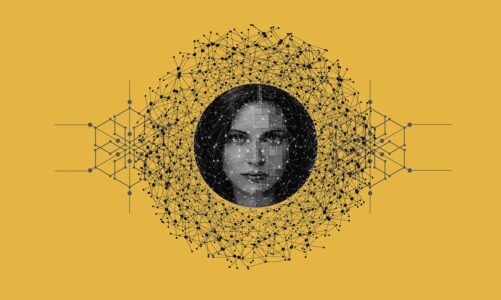
As a persistent reader myself, I would spend hours reading numerous books, and then, once finished, I’d think to myself ‘wow I wish I could watch this on screen!’.
The idea, in theory, sounds amazing. You’ve just read this gripping novel, and wouldn’t it be great if now you could spend the next two hours watching the world you’ve been absorbed in, come to life? And then even be able to converse and discuss it with your non-reading friends and family? Again, in theory, it’s a great and promising idea. However, when put into action, the results are often disappointing and can leave you feeling angered and distressed.
The idea of adapting books into films is inevitably sabotaged before it’s even begun. It’s physically impossible to condense an entire 400 paged book, in which everything is described, from the emotions to the actions to the narrative, and then place that detail and intensity into a two-hour movie. And although you can try, as many film companies have done, I don’t think I’ve ever come across a film adaptation that was better than the book. Not once.
In all fairness, I’ll appreciate the fact that it can’t be very straightforward to create an adaptation. Within books, character growth is not only easily seen, but also effortlessly felt, as the reader is placed into the mind of the narrator, in which they are transported into a world where THEY are the ones being exposed to fictional fantasy and worlds of whimsy. However, within films, although they are a wonderful distraction and can display beautiful imagery, the audience is most likely to feel like they are watching the adventures happen, rather than being apart of it. This would therefore explain why elements such as 3D and 4D were created; in attempts to immerse viewers further, so that they don’t just feel empathy for characters, but could feel like they are one of the characters.
To put this idea into a real-life context, I recently read a book called The Fifth Wave. The Fifth Wave was a captivating book by Rick Yancey that centered around the idea of an alien invasion, described through the perspective of several characters including, a teenage girl attempting to rescue her brother, a teenage boy in the military and an alien who falls in love with a human. Even though there were three different perspectives, and I am neither a teenage boy nor an alien, I still managed to feel like I was seeing their story through their eyes; I felt what they felt, saw what they saw and wanted what they had. The direct access I had into their thoughts and emotions created an empathy that no screen could possibly capture, and therefore this lead to my heavy irritation when watching the film last night.
Much to my parents’ annoyance, I spent the night pausing the film and ranting about how they left out key elements from the book or merged and forgot about side characters who added either comedy relief or initiated a deeper understanding of what the characters had to go through. And most annoyingly, my discomfort peaked at the rushed romance between characters, leaving their relationship bland, boring and ultimately stale.
Perhaps the movie was just simply badly portrayed, perhaps it was an exception limited to that specific film adaptation. However, when contemplating it further, there have been other cases in which the films just don’t do justice, such as the Harry Potter franchise.
Although Harry Potter certainly grew in popularity because of its adaptation to film, and even though, I am a fan of the films and would never say no to a Harry Potter movie marathon myself, those who have read the books, will know about the exasperation felt when watching, specifically, the character Ginny on screen.
Ginny Weasley, who is known for her eventual relationship with Harry Potter, is practically an entirely different person in the books, compared to how she is portrayed by Bonnie Wright in the film. In the books, Ginny is described as a protagonist who is spirited, brave, compassionate and heroic to say the least, yet in the film, Ginny was depicted as a minor character, someone in the background; further highlighted by her lack of lines. It also seemed, as if her entire purpose within the film, was to wait for one of the characters to fall in love with her and so this, therefore, stripped the independent and fierce image the books initiated, and consequently, was extremely disheartening.
Exasperation, desperation and severe discontent are just some of the emotions a reader may feel when watching a film adaptation. All I can say, is for those who don’t read the books before watching the film, you may be missing out, however, ignorance is certainly bliss is this scenario. It doesn’t matter how good the film is, whether it won an Oscar or not, readers will never be satisfied after reading the original book and therefore I ask you to question it…Should books be made into films?





I think this idea is accurate in regards to modern teen books…. But some of the greatest movies ever made are derived from written fiction. The Godfather (Mario Puzo’s book of the same name), Apocalypse Now (Heart of Darkness by Joseph Conrad) and Blade Runner (Do Androids Dream of Electric Sheep? by Phillip K. Dick) are 3 of my favourite movies, all based off of novels which were rich and interesting in their own right. I don’t think the value of a story lies within the amount of detail one can cram in, but rather the degree to which the story moves us, and I think the media of cinema is equally effective in this regard as novels are.
Hello Tom, thank you for your comment!
In no way am I saying that films derived from novels are bad, I know that. However the point I am trying to get across, is the fact that I’ve never seen a film that’s actually better than the book. Granted, there are some adaptations (mainly the classics as you pointed out) that have brought written fiction justice. However when looking at the overall big picture, there are a lot of films you may watch and think it’s amazing, and then you read the book and realize that the film wasn’t even half as good as what you’ve just read. To further emphasis this, I have cried after reading some novels, however I can’t say the same when watching the film version…it’s not because of the amount of detail, it’s because it just doesn’t strike the same kind of emotion and pathos. Not saying that adaptations don’t strike ANY emotion, or don’t move audiences, however I suppose what I’m trying to say is it’s arguable whether majority of the time, especially in modern day, sometimes the film just ruins this perfect raw emotion and imagery the reader has in their head.
As a persistent reader, sometimes adaptations of beloved novels are doomed from the start, but to treat this as a blanket idea would serve as a dishonor to the many, many adaptations which are regarded as classics as its own right. The Shawshank Redemption (adapted from Stephen King’s “Rita Heyworth and the Shawshank Redemption”) added and removed details from the source material to further its theme (to elaborate on it would spoil the details of its ending, but trust me, it’s awesome). The best adaptations should be able to move the audience and engage them in their story in spite of the changes they made to their source material. If studios were focused on cramming as much detail as possible and disregarded the themes of the original source material, it wouldn’t be an good movie to begin with, wouldn’t it?
Hello Tyler, thank you for your comment.
I like your points, as it is true that some adaptations do have the capability to move and change audience’s views. However my points generated around a broad sense, as when looking at the whole picture, some film adaptations may be good, however, they’re good in a different way…and in that sense it’s arguable if they bring the actual novels to justice, even though they may bring the film industry to it. Now if looking specifically at film adaptations that were successful, well that could be an entire new OP-ed in itself. Some film adaptations may be amazing, and have the power to move large audiences, but in a way, it’s difficult to compare it to the novel, because the way a film strikes pathos is completely different in comparison to emotions within a book.